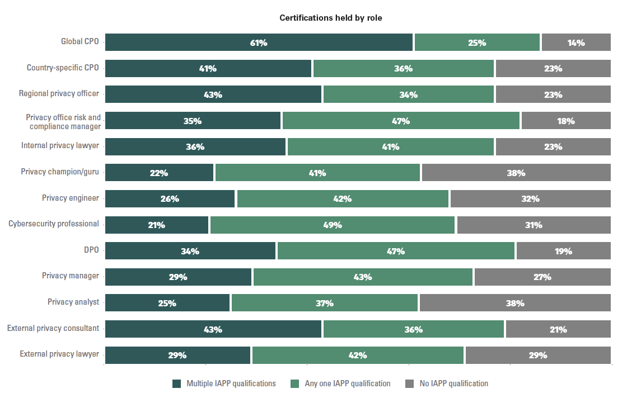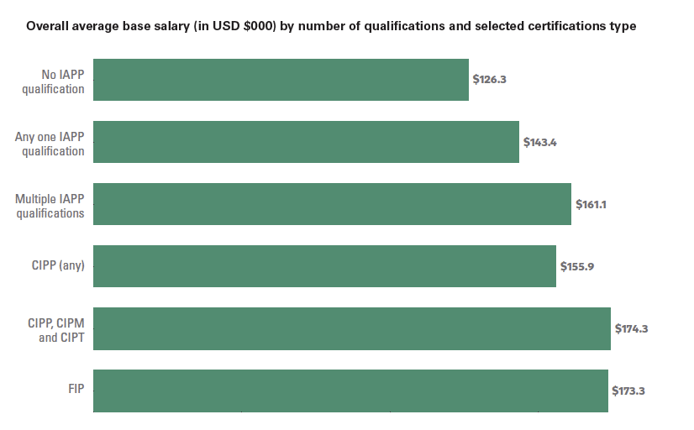Professional privacy certifications have always been a “nice to have” for job seekers to differentiate themselves in the marketplace and have been a “must” for some seeking advanced roles or entries into highly technical spaces. However, according to the 2023 IAPP Privacy Professionals Salary Survey, privacy professionals with certifications also earn more than those without extra credentials — and
certifications can also help decrease unemployment.
A recent webinar highlighting the research findings of the salary survey discussed this phenomenon. Webinar panelists included TRU’s Founder & CEO Jared Coseglia, alongside IAPP Principal Researcher in Privacy Management Saz Kanthasamy, CIPP/E, CIPM, FIP, and IAPP Research & Insights Director Joe Jones – TRU and the IAPP collaborated on the research and production of the survey. The trio came together to present the most critical takeaways and results. The need for certifications were one of the key findings.
In Privacy, It's Not Just Who You Know — It's What You Know
When considering the 1,400-plus survey respondents’ highest level of education, the data pointed to the following:
- 19% of respondents held an undergraduate degree as their highest level of education
- 42% of respondents had a law degree
- 31% said they had a postgraduate degree, such as a master’s or doctorate
- Overall, 95% of respondents reported having some degree-level qualifications
But their education didn’t stop there. For privacy certifications, privacy professionals have many choices and needs for certifications and are making the effort to get certified. Coseglia noted that the respondents were eager to share their credentials for the researchers:
- 77% of the survey respondents held at least one IAPP qualification.
- 37% held multiple IAPP qualifications.
- 30% of global CPOs held the Fellow of Informational Privacy certification (An FIP includes those who have a CIPP and either a certified information privacy manager or certified information privacy technologist certification, along with at least three years of experience). This percentage encapsulates only 6% of the CPOs surveyed. Global CPOs were more likely than those in other roles to hold both any IAPP qualification and any certified information privacy professional qualification.
The stats-by-role webinar slide showed the complete extended educational story:

Responses show that privacy professionals have earned a variety of certifications, including certified information systems security professional (CISSP), certified information security manager (CISM), certified information systems auditor (CISA), certified business continuity professional (CBCP), certified data privacy solutions engineer (CDPSE), and certified public accountant (CPA). However, all of these were held by less than 5% of respondents. Those with the job title of cybersecurity professional were more likely to hold other qualifications with almost four out of 10 holding a CISSP, five out of 10 holding a CISA and two out of 10 holding the CDPSE.
Show Me the Money (in Data Privacy)!
Here is what the survey responses told TRU and the IAPP researchers:
- Respondents with one IAPP qualification earned over 13% more than those without any certs
- Respondents with multiple IAPP certifications earned 27% more
- Respondents with specific combinations earned at least 20% more than those with only one IAPP qualification
- External privacy consultants got the biggest benefit: Those with one IAPP qualification earned 76% more in average base salary over those with no IAPP certifcations
And the dollars break down as shown:

Download the Report Today!
Ready to learn all about your salary earning potential or what you can expect to pay new hires? Download the 2023 IAPP Privacy Professionals Salary Survey for free from the TRU website.
